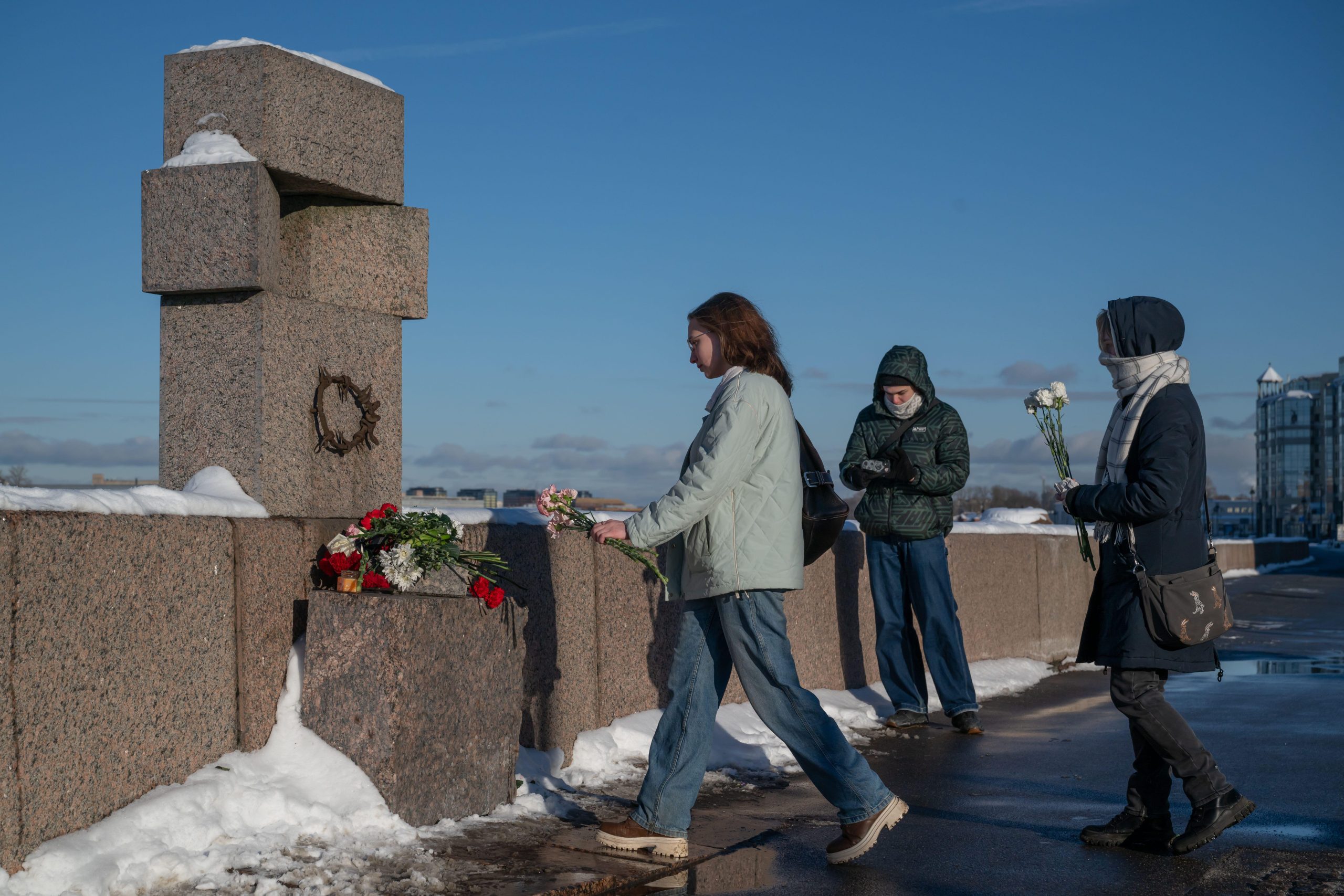Tens of people gathered near Moscow’s Tagansky Court on Wednesday to protest against the prosecution of members of feminist punk group Pussy Riot.
Three activists locked themselves in a cage near the court building and police struggled hard to unlock it and detain them “for taking part in an unsanctioned rally”. Six other activists were detained for having stood in the traffic area near the court. They later faced administrative charges for “breaking the rules of the rally organisation”.
Maria Alekhina, Nadezhda Tolokonnikova and Ekaterina Semutsevich have been accused of hooliganism for allegedly staging an anti-Putin performance in Moscow’s Christ the Saviour Cathedral. They face up to seven years in prison if convicted.
The court set a deadline for the women to acquaint themselves with the criminal case reading materials. They have until 9 July to read the volumes which, according to one of their their lawyers, Mark Feigin, “violates the defence’s righs to get prepared for the proceedings,” as they do not have enough time to read them. The trio announced a hunger-strike in protest.
Outside the court building people wore t-shirts with the band’s picture and white ribbons, a symbol of protest against Vladimir Putin’s authoritarian policy. Most of them told Index they did not believe their actions could influence Pussy Riot’s destiny, but nor could could staying silent
Russian intellectuals and artists have condemned Pussy Riot members’ persecution in an open letter, stating the criminal case “compromises the Russian judicial system” and “undermines the confidence in Russian authorities”. The letter was signed by notable directors, writers and actors, including Viktor Shenderovich, Dmitry Bykov, Chulpan Khamatova, Mikhail Zhvanetskty, Eldar Ryazanov.
Rock group Faith No More invited free Pussy Riot members to participate in their Moscow concert on 2 July, where the women asked to “support their sisters” and chanted out:
Russian rebellion. We do exist. Russian rebellion. Putin has pissed with fear.
However, the number of protesters near the court on 4 July did not exceed 300 people. One of them, notable Russian poet Lev Rubinshtein, told Index that in spite of international rights activists’ community concerns over Pussy Riot’s persecution, “most people in Russia are simply not aware of Pussy Riot case, or have heard the name and condemn the women without finding out the details.”
This lies in two things: censorship on Russian television prevents the public from understanding the Pussy Riot story in detail, and the lack of solidarity between activists in Moscow and other Russian cities prevents others from protesting against the group’s prosecution outside the capital.




